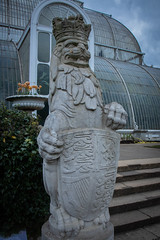Today is the 66th anniversary of the liberation of Auschwitz-Birkenau, and since 2001 this day has been recognized in the United Kingdom as the Holocaust Memorial Day. In 2005 the United Nations declared this an international event. The day is used to remember the victims as well as those whose lives were changed during the Holocaust, Nazi persecution and the subsequent atrocities in Rwanda, Cambodia, Bosnia and the ongoing atrocities in Darfur. This year’s theme is “Untold Stories”:
Being Jewish, I have always had an interest in stories from the Holocaust. I have an appetite for all forms of media to do with the Holocaust from reading Ann Franks’ Diary through to watching Schindler’s List. I am often left with a number of different emotions: Anger, Frustration, Sadness and Hope.
Anger
Off course the brutality of what happened during the Holocaust is a big cause of the anger. You think how can human beings be so wicked. Also, why did so many people turn a “blind eye” to what was going on. In occupied Europe, many people could see what was happening and decided not to act.
Many people I know think that the people who turned a blind eye to what was happening, and the people who carried out the atrocities, probably didn’t have any conscious, but I don’t really believe that. People react differently in wartime – and I think it is impossible to really understand the way people act, if you have not lived through a similar time. Everyone feared for their lives, and our natural instinct for survival means that you would do things that you would not normally do. However, this still doesn’t stop me from being angry, that people can ignore such dreadful things.
Frustration
There were reports back about the plight of hundreds of thousands of people in the death camps. True, at the start of the “transportation” most people thought that their friends and family were being transported to Labour Camps, yet by 1941, news of the death camps was well-known across Europe and the Ghettos. However, there are not many stories of people fighting for their freedom. The biggest uprising didn’t happen until 1943 in the Warsaw Ghetto. This lasted a few months, and the official figures show that 17 Germans died and 13,000 Jews lost their lives. With the might of the German army, I guess any uprising would just delay the inevitable, as the result of Warsaw Ghetto uprising proved.
However, even knowing this, I still feel frustrated that people would rather go to their deaths passively. Maybe, even knowing what was waiting for them at the end of their long train journeys, there was some hope that they would be saved.
Sadness
I feel sad for a number of reasons. Off course, for all those people who lost their lives for no reason, those who survived and have had to live with what they saw and experienced. However, there are also personal reasons.
I have probably lost relations to the Holocaust. My Great-Grandfather came from Poland, and on a recent visit to the Holocaust Memorial in Paris, I discovered, that the family name, which has since been anglicized, appears in the list of names of people who lost their lives in the concentration camps.
Although my Jewish roots made me interested in the Holocaust, this discovery made the events even more real.
It also made me think how easy it would have been for me to be caught up in the events. I know, my parents would not have met if my Great Grandfather never came to England, but I realise from reading the stories, how easy it could have been me.
Hope
Yes HOPE. Hope that the stories were untrue, hope that they would be saved from the death camps, hope that the War would end and hope that there were people who would help them.
There were people who proved that hope in your fellow-man was not unfounded. There are many examples of people helping Jews escape the Holocaust. Whether it was for profit, as with Oscar Schindler, or just to help a fellow human being, such as Raoul Wallenberg. I have only recently discovered the story about Wallenberg, who was a Swedish diplomat based in Budapest, Hungary during the War. I am currently reading a book about Wallenberg called “To Save a People” by Alex Kershaw. I will post more about Wallenberg shortly.
Has mankind learnt any lessons from the Holocaust? I’m not exactly sure that we have. Genocide is still happening somewhere, and although the general public put pressure on our leaders to do something, they are often still too slow to react.




